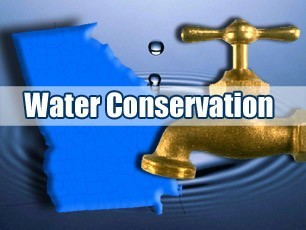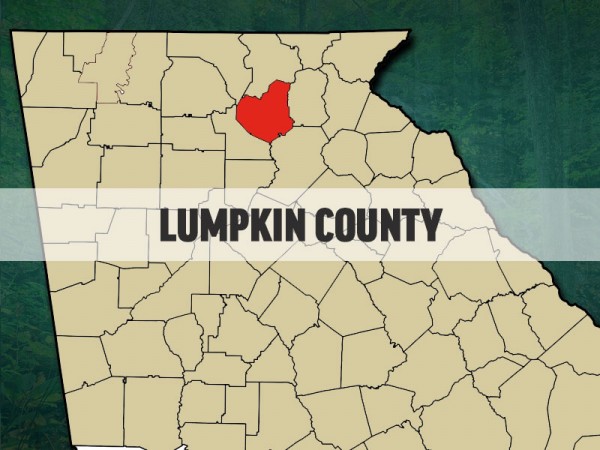WASHINGTON - Atlanta and other drought-stricken Georgia cities miss out on millions of federal dollars to repair leaky water infrastructure because the state's congressional delegation lacks clout on key funding committees in Washington.
In the $555 billion spending bill that President Bush signed last month, Georgia received just $1.6 million in federal "earmarks" from a fund that helps local governments improve sewer systems and replace aging water pipes.
An Associated Press analysis shows that 33 states received more funding, including far smaller ones such as West Virginia, Indiana and Kentucky.
The picture was about the same in 2006, when Georgia received $1.9 million from the Environmental Protection Agency fund while North Carolina and Mississippi took in about $9 million each. At least six municipalities in Mississippi alone - including Pontotoc, Biloxi and Pascagoula - received more EPA earmark dollars than Atlanta, which got just $500,000.
The disparities show how "earmarking" - lawmakers steering money toward pet projects - can skew spending priorities toward politically influential districts. They also highlight the Georgia delegation's weakness in the process: The state for years has ranked poorly in drawing earmarks, according to spending watchdog groups.
Atlanta Mayor Shirley Franklin said state leaders simply did not make water infrastructure a priority until the recent drought. Atlanta and other local water systems estimate that they lose 10 to 20 percent of treated water due to leaky infrastructure.
"What the entire delegation has said to us is that there is not enough money to go around," Franklin said. "We are basically financing our water system on sales taxes and high (water) rates."
Congress for decades has supported local infrastructure projects through an EPA program that helps systems meet federal clean water standards. Most of the money goes to states based on a complex funding formula, to be distributed to municipalities through a loan fund.
But earmarks aimed at specific projects have eaten up a steady chunk of the funding since 1989, accounting for about $7 billion out of the total $42 billion, according to a recent Congressional Research Service report.
Because earmarks are often tucked inside massive bills with little notice, it's difficult to say exactly how much of those earmarks Georgia has received. What is clear is that the state is not faring well.
Neither of Georgia's U.S. senators, Johnny Isakson and Saxby Chambliss, sits on the appropriations committees that write spending bills. Just two of the state's 13 U.S. representatives are members - Jack Kingston, R-Savannah, and Sanford Bishop, D-Albany.
"We're nowhere near where we should be" with earmarks, said Kit Dunlap, chair of the Metropolitan North Georgia Water Planning District, which represents a 16-county metro Atlanta region. "But that's what earmarks are all about. They're not necessarily fair, particularly when we looked at our neighboring states, knowing the longevity of some of their folks in Congress."
Dunlap's organization received a $300,000 EPA earmark this year, which she called "a pittance" compared with dozens of small cities elsewhere that got $1 million or more. Her group projects it will need almost $10 billion over the next three decades to upgrade supply, treatment and distribution infrastructure.
Isakson, a Marietta Republican, and Rep. David Scott, an Atlanta Democrat, both pointed out that Georgia gets infrastructure funding in other areas of the budget. In the most recent round of bills, for example, the delegation secured a $1.5 million earmark for Atlanta sewer improvements from an Army Corps of Engineers account.
But overall, Georgia lags behind its peers in that budget as well. And Georgia's per capita share of all earmarks ranked 37th in 2006, with 206 projects worth $532 million, according to an analysis by Taxpayers for Common Sense.
That's about $65 per person, compared with more than $300 per person for states like Alaska, West Virginia and Mississippi.
The weakness in winning EPA grants traces back to at least the mid-1990s, said Rich Gold, a lobbyist whose firm represents many Georgia municipalities on Capitol Hill.
"It's not that they're not paying attention to it," he said. "But you have to have somebody who's senior enough to push it through."
The delegation could gain more clout next year as Kingston and Bishop rise in seniority after the retirements of several members. Due to their positions, Kingston's and Bishop's districts already fare better than other Georgia districts. Rep. John Lewis, an Atlanta Democrat, also gained more influence when he moved into a leadership position after Democrats took control last year.
But their cause took a hit recently as two members of the delegation, Republican Reps. Lynn Westmoreland of Grantville and Tom Price of Roswell, pledged to give up earmarks this year to send a message about rampant federal spending.
Scott said he and other lawmakers have been plotting another push for water infrastructure money as the drought grew worse. And he said he's discussed the issue with House Speaker Nancy Pelosi, D-Calif.
"Atlanta has suffered dramatically because of this drought," Scott said. "We have attention now focused on that."
Tuesday
April 29th, 2025
3:38AM

















